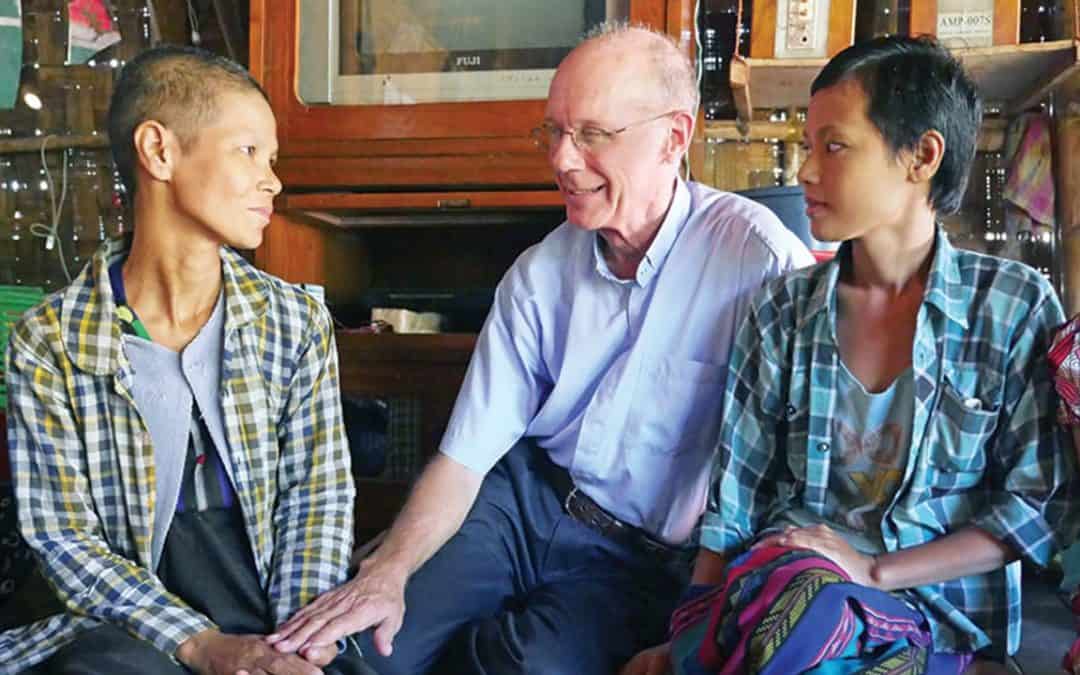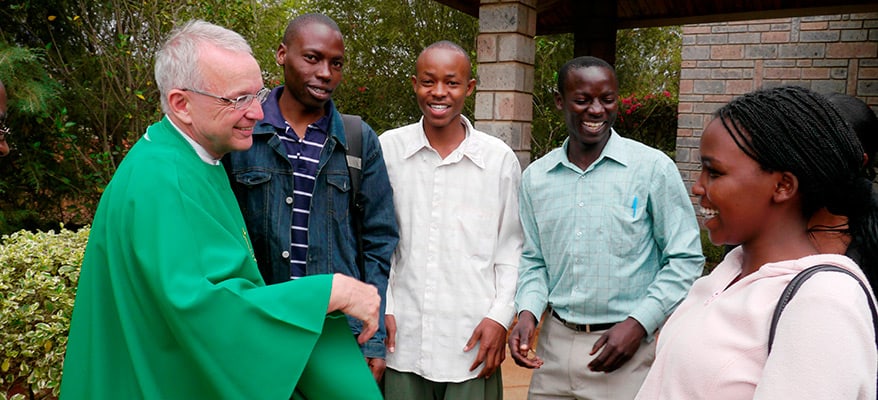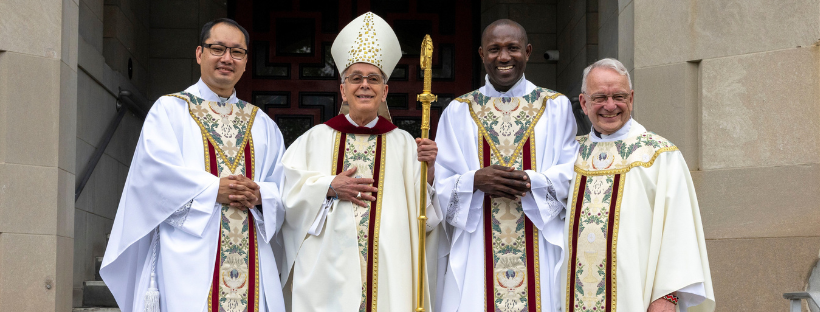Our reflection today focuses on the brief, yet profoundly insightful, first reading where we hear some very concrete, practical advice from the Book of Leviticus: “Love your neighbor as yourself” (19:18). Indeed, there is one debt that we will always owe and never be able to pay fully. The command to love remains constant; love can never say: “I’ve done enough.”
A Central Virtue. A brief glance at Scripture reveals the centrality of love in Christian life. Jesus commands his disciples to manifest mutual love: “By this love you have for one another, everyone will know that you are my disciples” (Jn 13:35). Paul tells the Ephesians: “Follow Christ by loving as he loved you” (Eph 5:2); he advises the Corinthians: “Let everything you do be done in love” (1 Cor 16:14). John writes: “Whoever does not love does not know God, because God is love” (1 Jn 4:8); “God lives in us and his love is made complete in us” (1 Jn 4:12).
Of course, one can never forget Paul’s great “love exhortation” in the thirteenth chapter of First Corinthians: “Love is always patient and kind; it is never jealous; love is never boastful or conceited…. Love never comes to an end” (13:4, 8). “There are three things that last: faith, hope and love; and the greatest of these is love” (13:13).
Debt of Love. Loving “one another” includes not only those who are believers; this command extends to all people. In his Good Samaritan parable (Lk 10:29-37), Jesus shows that the command, “You shall love your neighbor as yourself” (Lev 19:18) extends even to strangers in need. Christians are to love without distinction; it is of no consequence whether people are good or bad, deserving or undeserving, grateful or ungrateful. We stand in debt to love them all—unselfishly!
Someone may ask: When did I incur this debt of love for others? In Baptism we received the marvelous gift of God’s unbounded love and mercy; thus, we are obligated to generously manifest this same merciful love to others. We did not deserve or earn the gift of God’s love; it is gratuitously lavished upon us. Our “debt of love” flows from God’s superabundant love for us; “what proves God’s love for us is that Christ died for us while we were still sinners” (Rom 5:8). Loving others is the only way to thank God; he first loved us—unconditionally!
Paying the Debt. It is a fact that paying off debts is a challenging task; it requires discipline and self-sacrifice. Paying the debt of loving others involves personal sacrifice and concrete action. We ask our heavenly Father to assist us in paying our debts of mutual love and compassion. Admittedly, we always fall short of perfectly loving each other. Yet, we struggle daily to live in love, seeking to partially pay our debt—all with the help of God’s own transforming love and grace!
James H. Kroeger, M.M.
7th Sunday in Ordinary Time
Jesus, you are God made visible,
divine love in human form,
perfect reflection and image of love:
giving, feeding, healing, serving,
yet wounded by us and for us,
that we too might seek, find and
love one another even as you see
love in each one of us.
Unworthy and undeserving, and
while we were yet sinners
you died for us, Lord Jesus, and
rose to new life to show us the way
of true happiness, holiness and love.
Grant us the grace, Lord, to forgive
others as you forgive us
and to make love the center of our lives.
Hold your wounds ever before our eyes
that we might never forget the price you paid
that all people might truly be free.
As your wounds are proof of your love
and source of healing for the nations,
transform our wounds, Lord Jesus,
physical and spiritual, into fountains
of grace, love and healing for others.
Amen.
Prayer by Father Joe Veneroso, M




